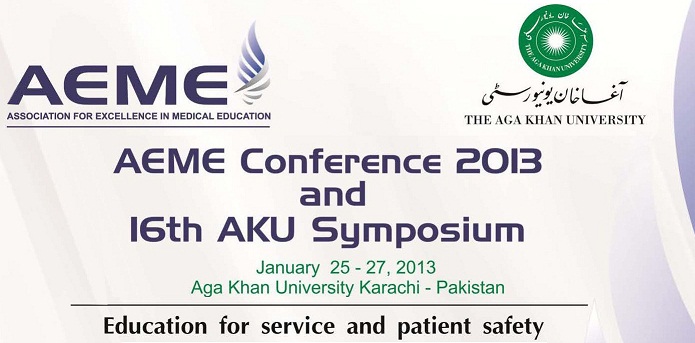Day 1 : Oral Presentations (Theme: Patient Safety)
Medication errors at atertiary care hospital: Underlying factors and health care professional experiences
Location
Lecture Hall 2
Start Date
26-1-2013 10:50 AM
Abstract
Background: Medication error is considered to be an important indicator of a patient’s safety. Several error producing factors contribute to its occurrence and may jeopardize the self-esteem of the health care professionals who commit the error. Using a mixed method design, this study aimed to identify the underlying factors of medication errors and the experiences of the health care professionals who had committed medication errors.
Methods: The study was conducted at a tertiary care hospital in Karachi. Following the eligibility criteria, 64 medication errors, reported in the period from December 2011 to March 2012, were included in the study. Data was collected by reviewing documents pertinent to the errors, a self-administered survey questionnaire, and face-to-face interviews with doctors, pharmacists, and nurses who had committed an error.
Results: Analysis of the quantitative data showed that of the 64 errors, 49 were actual errors, 15 were near misses and 2 were classified as sentinel events. The highest percentage of errors was committed in the administration phase, by nurses, in the morning shift. The content analysis of the qualitative data led to two themes–stress and workload and the violation of policies. The immediate reactions of the health care professionals to the incidents included denial, shock, anger, distress, and guilt. Their responses were mainly dependent on the nature of the incident. Support from spouses, the management staff, and colleagues helped them to cope with their emotions, but the need of official counselor was identified. Most health care professionals accepted the error as a learning opportunity but remained worried about the consequences the incident may have on their professional image and career.
Conclusions: The study has provided information about the causes and the feelings associated with medication errors. Recommendations provided in the light of this study may help to get information about the underlying factors of medication errors. Besides possible harm to patients, the study confirmed that medication errors can cause extreme emotional distress in the health care professionals involved in the errors. These findings have implications for the hospital administration to bring an improvement in the system.
Key words: Keywords: Medication errors, factors, emotional responses, coping strategies
Medication errors at atertiary care hospital: Underlying factors and health care professional experiences
Lecture Hall 2
Background: Medication error is considered to be an important indicator of a patient’s safety. Several error producing factors contribute to its occurrence and may jeopardize the self-esteem of the health care professionals who commit the error. Using a mixed method design, this study aimed to identify the underlying factors of medication errors and the experiences of the health care professionals who had committed medication errors.
Methods: The study was conducted at a tertiary care hospital in Karachi. Following the eligibility criteria, 64 medication errors, reported in the period from December 2011 to March 2012, were included in the study. Data was collected by reviewing documents pertinent to the errors, a self-administered survey questionnaire, and face-to-face interviews with doctors, pharmacists, and nurses who had committed an error.
Results: Analysis of the quantitative data showed that of the 64 errors, 49 were actual errors, 15 were near misses and 2 were classified as sentinel events. The highest percentage of errors was committed in the administration phase, by nurses, in the morning shift. The content analysis of the qualitative data led to two themes–stress and workload and the violation of policies. The immediate reactions of the health care professionals to the incidents included denial, shock, anger, distress, and guilt. Their responses were mainly dependent on the nature of the incident. Support from spouses, the management staff, and colleagues helped them to cope with their emotions, but the need of official counselor was identified. Most health care professionals accepted the error as a learning opportunity but remained worried about the consequences the incident may have on their professional image and career.
Conclusions: The study has provided information about the causes and the feelings associated with medication errors. Recommendations provided in the light of this study may help to get information about the underlying factors of medication errors. Besides possible harm to patients, the study confirmed that medication errors can cause extreme emotional distress in the health care professionals involved in the errors. These findings have implications for the hospital administration to bring an improvement in the system.
Key words: Keywords: Medication errors, factors, emotional responses, coping strategies

